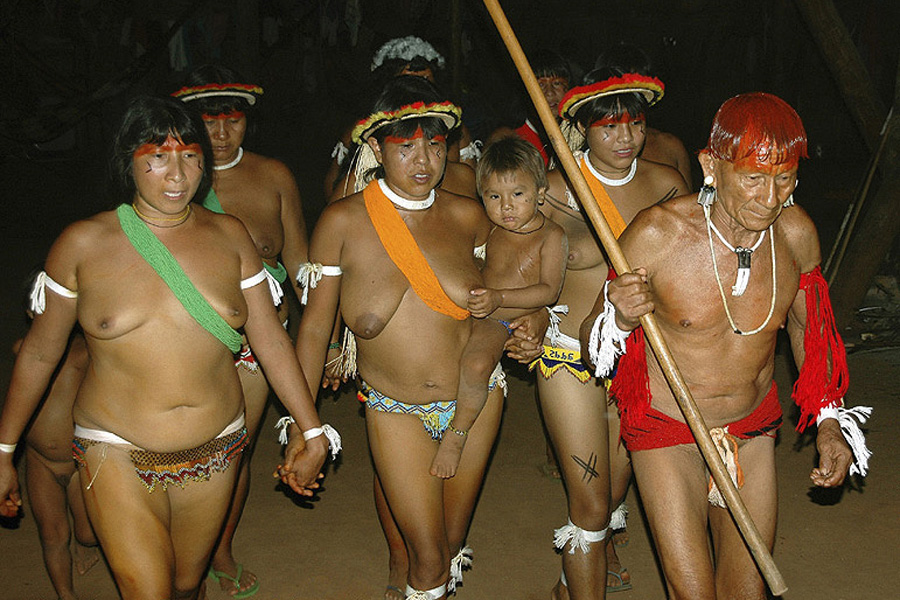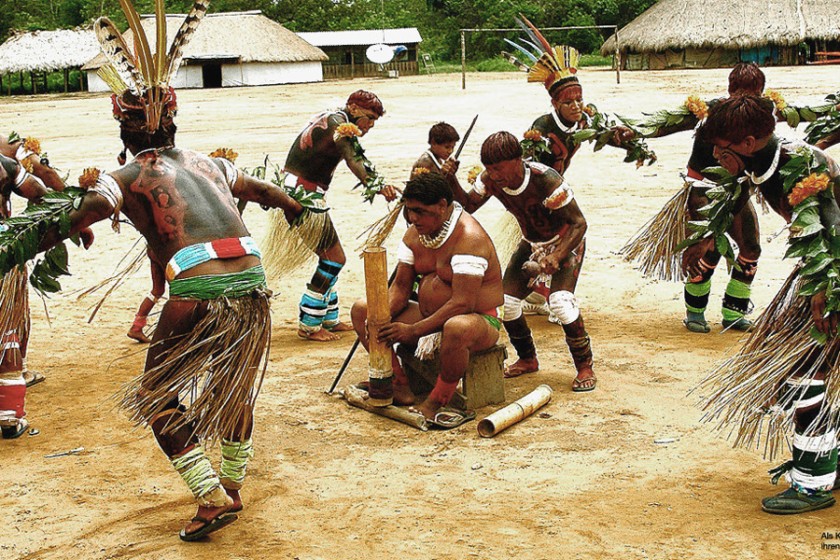Witness the famous mortuary ritual carried out by the native tribes of the Upper Xingu in the Amazon
The Quarup ritual is celebrated by the indigenous tribes of the Upper Xingú River in the state of Mato Grosso. The celebrations are attended by up to 1000 participants from various ethnic groups, such as the Kamayurá, Kuikuro, Mehinako, Kalapalo, Matipu, Waurá, Kaiabi and Aweti. The ritual is always held in the year following the death of a relative. Painted tree trunks represent the deceased relatives who are to be honoured here. The families of the deceased gather around the trunks placed in the center of the village. They spend the whole night there, undisturbed by other participants, praying and crying as they say their last goodbyes to their loved ones.
Part of the Quarup ritual is also the initiation rite of the girls who have to remain under supervision for 1 year before the Quarup. A time of reflection that heralds the end of puberty.
An important part of the Quarup ritual is the famous and colourful Huka Huka wrestling match. For this, the fighters of all ethnic groups prepare themselves after sleeping all night by painting their entire body, including their hair, in a special way. The mass wrestling matches are held according to fixed rules and are a great spectacle. After the battles, the ornaments and decorations on the tree trunks are removed and given to the families of the deceased who were honoured here. In order to finally free their souls, the tree trunks are now thrown into the nearby lagoon.
The tradition and culture of the people on the Rio Xingú is maintained through the sacred ritual QUARUP. A tradition passed from father to son for generations.
Guests are accommodated in very spacious aboriginal ocas. These ocas are architectural masterpieces and measure around 35m in length, 15m wide and 8m high. You live with a large family and therefore have direct contact with the residents. You live among them, so to speak, and experience their impressive way of life and culture up close.
At the entrance there is a so-called muratiara, which is a very happy barter where items we have brought (hammocks, knives, fishing hooks, flash lights, etc.) can be exchanged for handicrafts made by the villagers.


